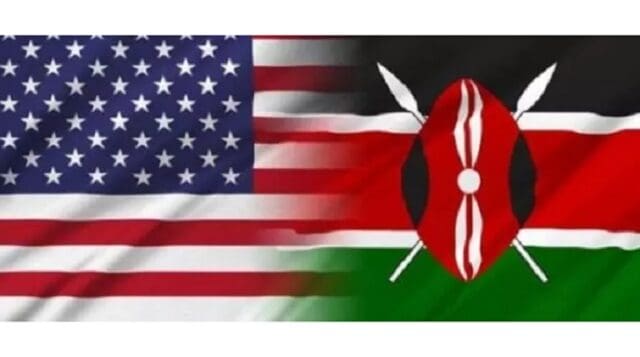
The globalization of political and personal lives and the spread of democracy throughout the world and an increase in migration have contributed to an increased interest in external voting for many people who are temporarily or permanently absent from their countries. External voting is now on the political agenda of many countries. The realization of the principle of universal suffrage crystallizes the rule of law, increases political participation and enhances the legitimacy of the democratic system. Suffrage allows the diaspora dwellers to have a voice in the good governance of their countries and in election of leaders whose decisions affect them and their families in the motherland. It also compels politicians to consider the needs and sentiments of diaspora voters. Historically, external voting is a new phenomenon. It was introduced in Mexico in 2006 presidential elections and was applied in Ghana for the first time in 2008 national elections.
In Kenya with an estimated 3 million citizens living in the diaspora, legislatures have not seen the urgency of engaging in such a complex debate with perceived few benefits. They see a small number of registered external electors who may not be directly affected by whatever effects the election results may bring in relation to domestic electors who are constantly nagging them. Egotistically speaking politicians do not see how such an exercise would benefit their own political careers. Furthermore these issues consume a lot of time to be enacted. For example Pres. Aquino of the Philippines introduced a provision in the Filipino constitution in 1987 that would secure the sanctity of the ballot as well as a system for absentee voting for qualified Filipinos living abroad. Despite her vehement support it would take another 16 years before the Overseas Absentee Voting Act would pass Congress and signed into law by Pres. Gloria Macapagal-Arroyo in 2003. In Mozambique the provisions to allow external voting were introduced in early 1990’s but not implemented until December 2004.
An argument promoted by politicians say that registered external voters are too few and the cost of raising that number with expected low voter turnout is too high to warrant any strenuous effort. They take their clues from the hundreds of millions of dollars spent to carry out external voting process for Iraq and Afghanistan elections in which only 0.2% turned out to vote. These politicians fail to see that a real political participation by the diaspora justifies the political effort involved and the financial costs incurred in the process. Those who sponsored that Iraq/Afghanistan election efforts still maintain that the efforts and the costs were worth it. Democracy is not cheap. Another concern the politicians have is the controversy external voting would create should the votes cast externally affect the results decisively and determine the winner. This nightmare would disrupt the internal voting mechanism, undermine domestic voter expectations and reflect negatively on the whole electoral process. The debate on external voting therefore should not be allowed to overshadow the concerns of the domestic voter but to integrate all concerns for the purpose of guaranteeing Universal Suffrage for all citizens.
Kenyan politicians have perfected the art of coming to the diaspora to say exactly what the people in the diaspora want to hear but the reality on the ground indicate otherwise. With interactive news websites, cable TV programs, social networks, cell phones, e-mails, teleconferencing and other electronic wonders, physical presence is no longer required to know what is going on in Kenya. Kenyans in the diaspora know exactly what is going on but it would appear that all that the Kenyans in Kenya know about Kenyans in the diaspora is that they are the “remittance senders” or “saviors of the economy.” But do they know or care that tens of women are raped and assaulted routinely in the Middle East? Do they know or care about the toil, blood, sweat and tears that it takes to prop up the economy and keep their foreign exchange reserves manageable?
It is not enough that the constitution guarantees the right to vote for all citizens, the reality is that voters who are outside the country are disenfranchised for lack of mechanism enabling them to exercise that right. If the very fact that external voting is permitted or enforced by the courts is controversial then it is likely that general trust in its implementation will be low. The efforts to register diaspora voters which should be done simultaneously with domestic registration is a case in point. This half-hearted effort will not produce the kind of numbers needed to justify expending adequate public resources for external voting exercise in 2017. There is also a lack of coordinated organization and strategic planning on how a vote would take place. Failure to engage local electoral bodies in host countries to provide voting equipment and logistics or to involve the diaspora community organizations make it clear that the embattled IBEC which is also preoccupied with its own survival will not be able to deliver. Right now IEBC has enough logistics and technicalities material to call off the diaspora voting exercise if they so desired.
There are four channels which the diaspora could use to vote. The first one is the Postal Voting in which a person fills out the ballot paper and the vote is sent via ordinary post. This method is too open for fraud and the postal service may be too slow in delivering the ballot on the voting day. The second one is The Proxy vote in which an external voter chooses a proxy who casts a vote for them at a polling station in the home country. The third method which is Personal Voting in which a voter goes to a specific place at a certain time such as a diplomatic mission or polling center to cast their vote. This method would disenfranchise many voters who have transport or time related constrains. The final method is Electronic Voting. If external voting is done electronically, it will be an even bigger challenge to observe all the steps of the process. IT systems can be manipulated from the inside and from the outside. Insiders may build in functions which may change the election results in certain directions. Such manipulation may in theory be conducted by the election administration itself and without the traditional paper trail it would be hard to assess or prove. In transitional democracies if the general trust of the election administration is low, an electronic voting system may add to the lack of confidence in the election process. There is no system that is 100% proof but certain measures can be taken to minimize fraud and rigging. With all these information available the IEBC has not attempted to come up with a somehow transparent external voting system that guarantees sanctity of the diaspora vote.
Trust and credibility of the electoral body is Key. It is more important than even the credibility of the President. There is no argument that IEBC has lost the ability to conduct elections. Fair or not. The diaspora is an important stakeholder in the proposed talks for the creation of a new transparent and truly independent electoral body. This commission must look beyond 2017 elections and into permanent electoral reforms and external voting arrangements. The government should not be saying that it will look for money to finance an electoral process. Elections are not emergencies and budgets should have been drawn up long time ago. The electoral work in a geographically vast diaspora requires a lot committed human and fiscal resources including logistics and coordination. A newly created electoral body that is still trying to get its footing domestically would not be able to accomplish much in a year, therefore we know for a fact that the diaspora voter expectations for 2017 will sadly not be met.
Our challenge now then is how to go beyond 2017 and be a significant force in future elections despite lack of public resources and our low registered voter numbers. How to leverage $1.5 Billion dollars sent to Kenya to influence voters to support candidates who are supportive of diaspora issues. This is the debate we should be having now in the diaspora. We should ask Presidential candidates what they plan to do to support Kenyan immigrants in the diaspora. The Kenyan Government has to develop an enlightened view of the Kenyan diaspora. The ideal is for the government to establish a ministry, (not a desk or an agency) of Diaspora affairs to connect Kenyan diaspora community with its Motherland, viewing 3 million Kenyans in the diaspora not just as remittance senders but important bridge to access knowledge, expertise, resources and markets for development of Kenya. To make Kenya’s engagement with its diaspora symbiotic by creating a robust resilient bond. A sustainable and mutually rewarding relationship across the economic, social, and cultural space should be at the heart of the policy of that ministry. That is our request.
Year 2017 brings just another election cycle but we are looking beyond that. We know that one day there will be genuine Kenyan diaspora representatives in the Kenyan Parliament. One day global summit of Kenyans in the diaspora will have representatives from more than 100 countries and it will be attended by the president, cabinet members, senators and representatives all wanting to know what they can do to serve our needs.
If we work at it that day will come sooner than we think.
One diaspora One Voice,
Yusef Kariuki.
DIASPORA: LOOKING BEYONG 2017 BY Yusef Kariuki.







